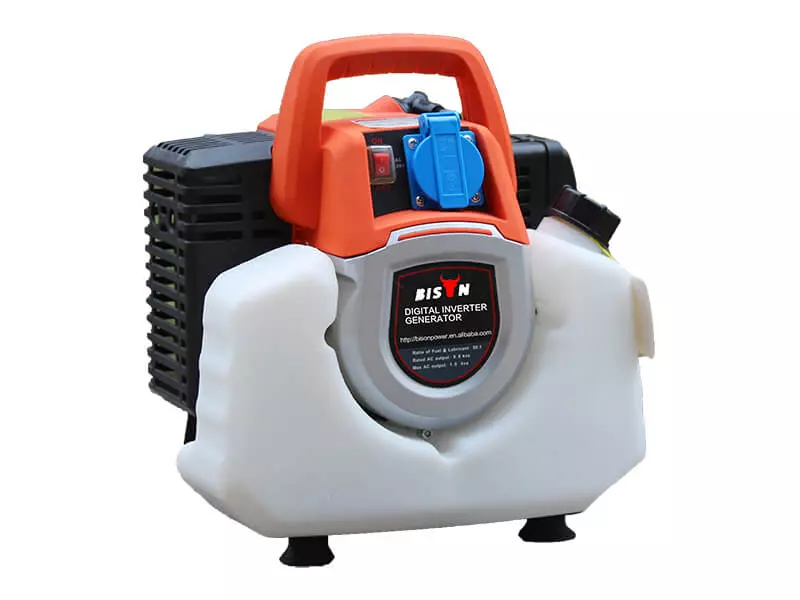What Is an Inverter Generator? Everything You Need to Know
What Is an Inverter Generator? Everything You Need to Know
Blog Article

If you're tired of power cuts or need a portable power source for outdoor activities, it's time to consider an inverter generator. These modern power solutions are compact, fuel-efficient, and safe for sensitive electronics. But what exactly is an inverter generator, and why are so many people switching to them?
Let’s break it down in simple terms and help you decide whether investing in one is the right move.
What Is an Inverter Generator?
An inverter generator is a portable power device that uses advanced electronic circuitry to produce clean and stable electricity. Unlike conventional generators, which supply electricity directly from the engine-driven alternator, an inverter generator first produces DC (direct current) power, then converts it into AC (alternating current) power using an inverter module.
The result? A steady and clean power output that’s safe for your sensitive devices like laptops, smartphones, and even medical equipment.
To learn more or explore quality options, check out this trusted inverter generator manufacturer.
How Does It Work?
Here’s how the process flows:
The engine (usually gasoline-powered) drives an alternator to produce AC electricity.
This initial AC output is often “dirty” with distortions.
A rectifier converts the AC power into DC.
An inverter then converts this DC back to clean, usable AC electricity.
The final output is stable, efficient, and safe for sensitive electronics.
Why Choose an Inverter Generator?
Here are some of the key benefits:
✅ Clean Power
Inverter generators provide pure sine wave output, making them ideal for powering sensitive electronics without the risk of damage.
✅ Fuel Efficiency
The engine speed adjusts according to the power demand, which saves fuel and reduces emissions.
✅ Portability
Most inverter generators are compact and easy to carry, making them great for camping, tailgating, and RV use.
✅ Quiet Operation
Because of variable engine speeds, they run quieter than traditional generators—perfect for use in residential areas or peaceful outdoor settings.
✅ Parallel Capability
Need more power? You can connect two inverter generators in parallel to double the output.
To find a high-quality unit that meets these standards, browse models from a leading inverter generator manufacturer.
Are There Any Drawbacks?
Yes, inverter generators have a few limitations:
Higher Price Tag: They use advanced technology, which adds to the cost.
Lower Power Output: Not suitable for running an entire home during a blackout.
Outdoor Use Only: Never use indoors or in enclosed spaces due to carbon monoxide risks.
How to Use an Inverter Generator Safely
Use only outdoors, at least 20 feet from any structure.
Don’t connect directly to a home’s electrical system unless professionally installed with a transfer switch.
Use grounded extension cords and keep them dry.
Look for models with built-in CO sensors for extra safety.
Frequently Asked Questions
1) What’s the difference between an inverter and a regular generator?
Inverter generators are quieter, more fuel-efficient, and produce cleaner power, making them safe for electronics. Regular generators are typically larger, louder, and less precise with voltage regulation.
2) Why would you want an inverter on a generator?
To safely power electronics, reduce fuel consumption, and enjoy quieter performance.
3) Can an inverter generator run a refrigerator?
Yes, a generator rated at 2000 watts or more can usually handle a refrigerator.
4) Is an inverter generator AC or DC?
It initially produces DC power and then converts it to AC using inverter technology.
5) How do I know if my generator is an inverter type?
Check for features like variable engine speed and the ability to produce clean sine wave output. The packaging or model specs should also mention "inverter generator."
6) How many hours does it run?
Most models last between 1,000–2,000 hours, depending on usage and maintenance.
7) How loud is it?
Typically between 50–65 decibels—much quieter than conventional generators.
Final Thoughts: Is It Worth It?
Absolutely—if you're looking for a quiet, efficient, and portable power source. While the upfront cost is higher, the long-term savings in fuel, peace of mind when powering electronics, and convenience are well worth it.
Whether you're preparing for emergencies or need power for outdoor adventures, an inverter generator is a smart choice. Be sure to explore options from a reputable inverter generator manufacturer to find the right model for your needs.
Report this page